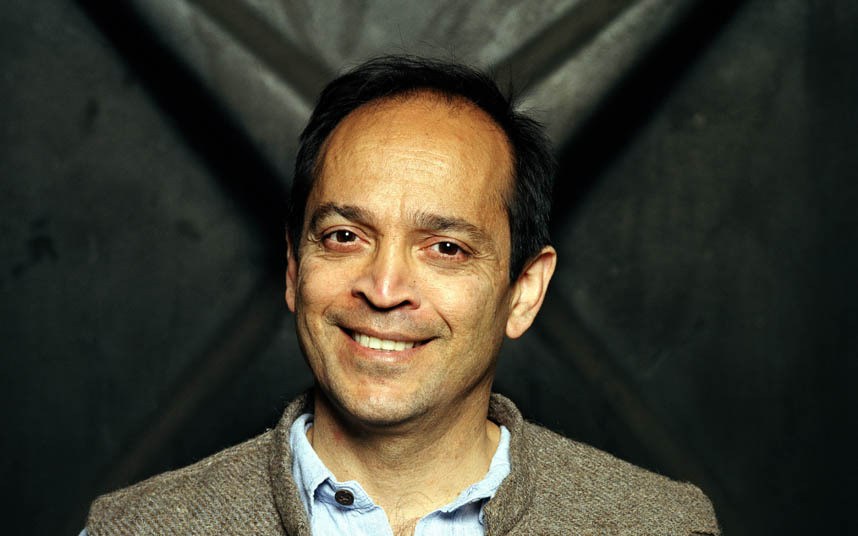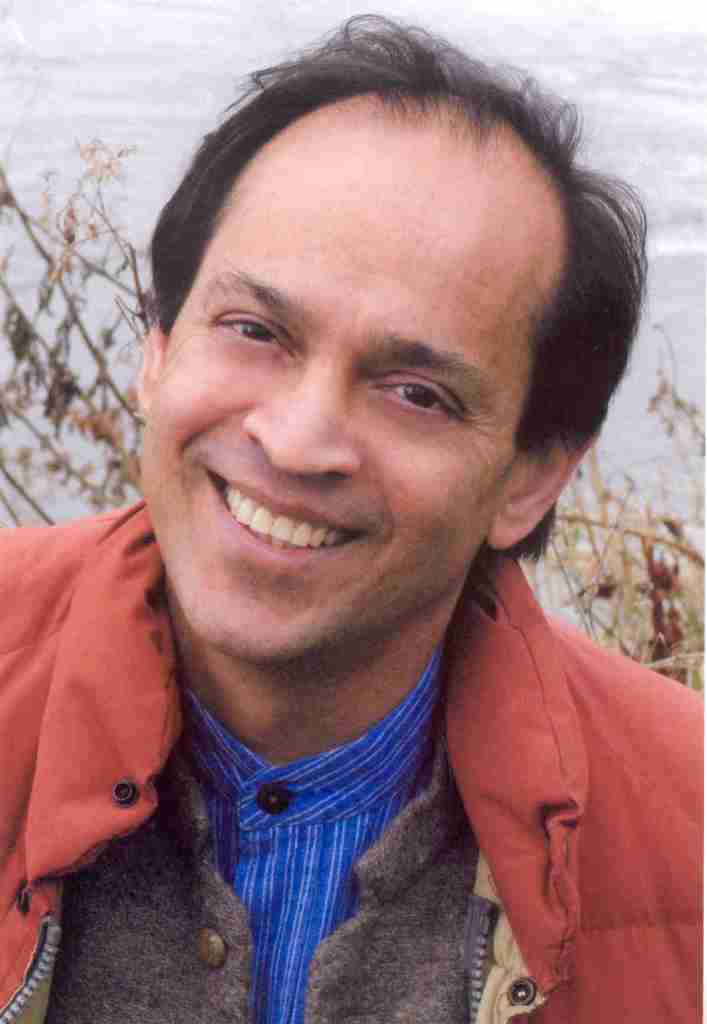A Doctor’s Journal Entry for August 6, 1945, is a poem about the atomic bombings of Hiroshima (on 6th August 1945) and Nagasaki (on 9th August 1945), the only use of nuclear weapons for warfare in history. That makes it an anti-war poem.
This poem was published in 1990 in the first issue of Volume 49 of the magazine Meanjin.
About the poet:
Vikram Seth is an Indian novelist and poet. He has won several awards including Padma Shri, Sahitya Akademi Award, Pravasi Bharatiya Samman, WH Smith Literary Award and Crossword Book Award. Seth’s collections of poetry such as Mappings and Beastly Tales from Here and There are notable contributions to the Indian writing in English poetry Canon.
Vikram Seth was born on 20th June 1952 to Leila and Prem Seth in Calcutta (now Kolkata) and is still alive. Having lived in London for many years, Seth now maintains residences in both England and India – one near Salisbury, England, where he is a participant in local literary and cultural events, having bought and renovated the house of the Anglican poet George Herbert in 1996, and another in Jaipur, India.
In 2006, Seth became a leader of the campaign against Section 377 of the Indian Penal Code, a law against homosexuality. His mother also wrote about Seth’s sexuality and her coming to terms with it in her memoir.
The setting of A Doctor’s Journal Entry for August 6, 1945:
This poem is set in Hiroshima, the site of the first atomic bombing. Seth portrays the situation after the bombing very poignantly. This world is completely destroyed. Even the people there are badly injured, if not dead. Hence the setting is very desolate and is bound to make readers pessimistic.
Summary of A Doctor’s Journal Entry for August 6, 1945:
The poem consists of 63 lines in total. These lines are not divided into stanzas. Here they are divided into meaningful segments for the purposes of this summary in order to make this poem easier to follow and understand. This poem is written in the first person. The narrator is the doctor who is referred to in the title of the poem.
Lines 1 – 4:
The morning stretched calm, beautiful, and warm.
Sprawling half clad, I gazed out at the form
Of shimmering leaves and shadows. Suddenly
A strong flash, then another, startled me.
In these lines, the doctor describes a calm and mild-weathered morning in which he found himself partially naked and lying on the ground. He looked around and saw the leaves of trees shaking and shadows everywhere. Suddenly there was a blinding flash of light, soon followed by another like it.
Lines 5 – 10:
I saw the old stone lantern brightly lit.
Magnesium flares? While I debated it,
The roof, the walls and, as it seemed, the world
Collapsed in timber and debris, dust swirled
Around me – in the garden now – and, weird,
My drawers and undershirt disappeared.
In these lines, the doctor describes how the top of his house appeared to be lit by something that he thought were magnesium flares. As soon as he noticed that, the roof and the walls fell down in a heap of wood and there was dust rising up from the pile. The doctor found himself thrown into the garden, and the drawers and undershirt he had been wearing were gone.
Lines 11 – 14:
A splinter jutted from my mangled thigh.
My right side bled, my cheek was torn, and I
Dislodged, detachedly, a piece of glass,
All the time wondering what had come to pass.
In these lines, the doctor says that he saw a slender piece of wood sticking out of his thigh which had been ravaged completely. The doctor’s right side was bleeding and so was his cheek, out of which he pulled out a shard of glass. All the time he was feeling distracted for he was trying to figure out what had happened.
Lines 15 – 18:
Where was my wife? Alarmed, I gave a shout,
‘Where are you, Yecko-san?’ My blood gushed out.
The artery in my neck? Scared for my life,
I called out, panic-stricken, to my wife.
In these lines, the doctor describes how he called out to his wife to see where she was. The artery in his neck started bleeding and he was sure he would die soon.
Lines 19 – 22:
Pale, blood-stained, frightened, Yecko-san emerged,
Holding her elbow. ‘We’ll be fine,’ I urged –
‘Let’s get out quickly.’ Stumbling to the street
We fell, tripped by something at our feet.
In these lines, the doctor says that his wife appeared, holding up her elbow and looking very scared and weak. The doctor assured her that they would be alright and asked her to leave the house. As soon as they stepped onto the street, they tripped over something.
Lines 23 – 31:
I gasped out when I saw it was a head:
‘Excuse me, please excuse me –‘ He was dead:
A gate had crushed him. There we stood, afraid.
A house standing before us tilted, swayed,
Toppled, and crashed. Fire sprang up in the dust,
Spread by the wind. It dawned on us we must
Get to the hospital: we needed aid –
And I should help my staff too. (Though this made
Sense to me then, I wonder how I could)
In these lines, the doctor reveals that it was the head of a dead man that they had tripped on, for a gate had fallen over him and killed him. The doctor and his wife watched in fear as a house collapsed before their eyes. It caught fire and the fire spread because it was being blown around by the wind. At this point, they realized that they needed to go to the hospital for help. The doctor wanted to help his employees as well but did not know how to do so.
Lines 32 – 35:
My legs gave way. I sat down on the ground.
Thirst seized me, but no water could be found.
My breath was short, but bit by bit my strength
Seemed to revive, and I got up at length.
In these lines, the doctor says that he couldn’t stand any longer, and sat on the ground. He was thirsty, but there was no water in the vicinity. He was panting, but eventually, he was able to stand up again.
Lines 36– 41:
I was still naked, but I felt no shame.
This thought disturbed me somewhat, till I came
Upon a soldier, standing silently,
Who gave the towel around his neck to me
My legs, stiff with dried blood, rebelled. I said
To Yecko-san she must go on ahead.
In these lines, the doctor says that even though he was still naked, he wasn’t ashamed of himself, and this thought unsettled him somewhat. When he came across a soldier, and this soldier gave him a towel to wipe his wounds with, but his legs couldn’t bear to be touched as the blood on them had dried up already. The doctor told his wife to go to the hospital leaving him behind, for he was slowing them both down.
Lines 42 – 45:
She did not wish to but in our distress
What choice had we? A dreadful loneliness
Came over me when she had gone. My mind
Ran at high-speed, my body crept behind.
In these lines, the doctor says that his wife did not wish to leave him behind, but ultimately she agreed to do it. He felt lonely after she left. His mind was moving fast, but his body could not.
Lines 46 – 51:
I saw the shadowy forms of people, some
We’re ghosts, some scarecrows, all were wordless dumb –
Arms stretched straight out, shoulder to dangling hand;
It took some time for me to understand
The friction on their burns caused so much pain
They feared to chafe flesh against flesh again.
In these lines, the doctor describes how people seemed to have been reduced to pale ghosts or unruly scarecrows, and how none of them were speaking. They were all walking with their arms in front of them. The poet couldn’t figure out why they were doing so, but soon he realized that their burns were so severe that they could not bear to even touch them against anyone else’s flesh.
Lines 52 – 55:
Those who could shuffled in a blank parade
Towards the hospital. I saw, dismayed,
A woman with a child stand in my path –
Both naked. Had they come back from the bath?
In these lines, the doctor describes that the people who had the strength to stand were all trooping towards the hospital. He also saw a woman and her child naked and wondered whether they had gone to take a bath.
Lines 56 – 59:
I turned my gaze but was at a loss
That she should stand thus, till I came across
A naked man – and now the thought arose
That some strange thing had stripped us of our clothes.
In these lines, the doctor describes how he turned away from the naked woman, wondering why she wasn’t trying to cover herself up. Then he realized that everyone’s clothes had been ripped off by something.
Lines 60 – 63:
The face of an old woman on the ground
Was marred with suffering, but she made no sound.
The silence was common to us all. I heard
No cries of anguish, or a single word.
In this stanza, the doctor describes how an old woman was lying on the ground and she looked very distressed, but she did not say anything. In fact, no one said anything, and no one even cried.
Some online learning platforms provide certifications, while others are designed to simply grow your skills in your personal and professional life. Including Masterclass and Coursera, here are our recommendations for the best online learning platforms you can sign up for today.
The 7 Best Online Learning Platforms of 2022
- Best Overall: Coursera
- Best for Niche Topics: Udemy
- Best for Creative Fields: Skillshare
- Best for Celebrity Lessons: MasterClass
- Best for STEM: EdX
- Best for Career Building: Udacity
- Best for Data Learning: Pluralsight











